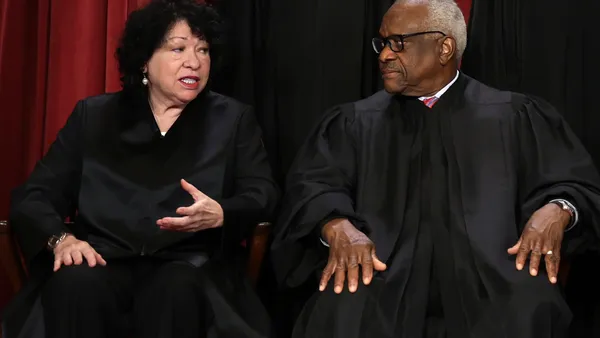A federal appeals court on Friday revived a lawsuit challenging an employer’s timekeeping practices, finding that rounding methods arguably didn’t average out over time (Houston v. St. Luke’s Health System).
Fair Labor Standards Act regulations permit rounding and the employer, St. Luke’s Health System, argued that such a ruling would render the rule too burdensome. The court, however, said advances in electronic recordkeeping make it easy for employers to audit rounding procedures to ensure employees are paid for all hours worked.
Facts of the case
An employee of St. Luke’s alleged in a putative collective action that the employer’s practice of rounding employees’ hours violated the FLSA.
According to court documents, clocked times within six minutes of a shift’s scheduled start or end were rounded to the scheduled time: “For example, an employee who clocks in at 8:56 a.m. for a 9:00 a.m. shift would not be paid for those four minutes. Likewise, an employee who clocks out early at 4:54 p.m. for a shift ending at 5:00 p.m. would still be paid for those unworked six minutes.”
A federal district court granted summary judgment for the employer, finding that the policy was neutral on its face.
Appeals court weighs in
The employee appealed, and the 8th Circuit revived the case. The policy wasn’t necessarily neutral, it said, because there was sufficient evidence to raise a dispute that the policy resulted in systematic undercompensation over time. Data revealed that the rounding policy cut time from about half of shifts, it said. The policy added time to a little more than one-third and had no effect on the others.
According to an expert for the plaintiffs, the policy favored St. Luke’s in the amount of 74,000 hours worked. Between the FLSA class and a separate state law class, the expert estimated St. Luke’s underpaid more than $2 million.
FLSA regulations allow employers to establish rounding procedures, within certain limits. One of those caveats requires that the policy have a neutral outcome: “For enforcement purposes this practice of computing working time will be accepted, provided that it is used in such a manner that it will not result, over a period of time, in failure to compensate the employees properly for all the time they have actually worked,” the rules state.
And “no matter how one slices the data, most employees and the employees as a whole fared worse under the rounding policy than had they been paid according to their exact time worked,” the 8th Circuit said. The court said it would be hard-pressed at this stage of the litigation to say the policy averaged out over time.
St. Luke’s argued that finding for the employees would render the FLSA rule permitting rounding irrelevant — or make it too burdensome to be worthwhile.
The court, however, disagreed: “[w]ith automated, electronic timing and accounting, this is easy to verify because the system records the exact time that an employee clocks in or out,” it said. “There is no administrative hassle. This is not like the old days of punch cards and hand arithmetic.”
An employment law attorney who spoke with HR Dive last year urged employers to undertake such audits. Organizations that round workers’ hours must be vigilant to ensure the practice doesn’t favor the employer, she said, making periodic timekeeping audits crucial to FLSA compliance.













